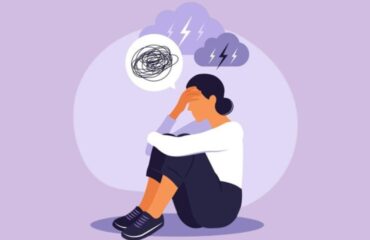Introduction
In today’s rapidly evolving world, where health challenges loom large, prevention has emerged as a fundamental pillar of maintaining overall well-being. By proactively embracing preventive measures and making informed, healthy choices, individuals can not only build resilience but also enhance their quality of life. This blog delves into a diverse array of prevention strategies, empowering individuals to seize control of their health, fortify their physical and mental well-being, and make sound decisions that pave the way for a healthier future.
Healthy Choices: Need Of The Hour
Now, more than ever, there is an urgent need to prioritize prevention as a means of combating the complex health issues that pervade our lives. In the wake of the realization in the post-covid era, many individuals have energetically started working on their health too. Instead of solely relying on reactive measures, such as treating illnesses after they manifest, the focus has shifted towards preemptive action. By actively engaging in preventive practices, individuals have the power to minimize the occurrence and impact of diseases, promoting a state of wellness that goes beyond the mere absence of illness.
Throughout this blog, we will explore various prevention strategies that encompass multiple facets of health, including physical and Mental Well-Being, immunizations, regular screenings, healthy lifestyle choices, environmental awareness, and the importance of health education. By delving into each of these areas, we will unravel the interconnectedness between preventive measures and resilience, elucidating how they work in harmony to shape a healthier, more fulfilling life.
1. Prioritizing Physical Health
Physical health forms the foundation for overall well-being. Engaging in regular exercise, maintaining a balanced diet, and ensuring sufficient sleep are fundamental preventive measures to keep one’s body in optimal condition. Incorporating physical activity into daily routines helps strengthen the immune system, control weight, and reduces the risk of chronic diseases which have become common today, such as heart disease and diabetes. Additionally, a nutrient-rich diet consisting of fruits, vegetables, whole grains, and lean proteins supports bodily functions and reduces the likelihood of developing diet-related conditions.
The benefits of regular exercise extend from improvement in physical health and numerous mental health benefits. Physical activities release endorphins, which are natural mood boosters, reducing the risk of depression and anxiety. Moreover, engaging in exercise promotes better sleep patterns, improves cognitive function, and enhances overall mental well-being. Above everything, a major benefit of physical exercise is the boost in confidence and the comfort a person gets in the way they look. That becomes an automatic builder of resilience and fosters mental health equally.
2. Mental Health Awareness And Self-Care
Just as physical health is essential, mental health plays a vital role in overall wellness. Building resilience requires individuals to prioritize their mental well-being. Engaging in stress-reducing activities, practicing mindfulness, and seeking emotional support when needed are integral components of mental health self-care. Recognizing and addressing the signs of mental health issues early on can prevent their escalation. This may involve seeking professional help, participating in therapy or counseling sessions, and engaging in activities that promote relaxation and self-reflection.
Creating a supportive environment that encourages open conversations about mental health is crucial. Education and awareness campaigns can help reduce the //stigma surrounding mental health, making it easier for individuals to seek help and support. Building resilience also involves developing coping mechanisms and stress management skills, such as deep breathing exercises, meditation, and engaging in hobbies or activities that bring joy and relaxation.
3. Vaccinations And Immunizations
Immunizations have long been recognized as a cornerstone of preventive healthcare. Vaccines effectively protect individuals against infectious diseases, preventing outbreaks and reducing the overall burden on healthcare systems. Staying up to date with recommended vaccinations not only safeguards personal health but also contributes to the collective well-being of communities. Following the guidance of healthcare professionals and government agencies regarding immunization schedules ensures that individuals are adequately protected against preventable illnesses.
In recent years, vaccinations have played a significant role to prevent the spread of deadly and infectious diseases like influenza, measles, and the infamous COVID-19. By getting vaccinated, individuals not only protect themselves but also help establish herd immunity, safeguarding vulnerable populations who cannot receive vaccines due to medical conditions. Therefore, keeping track of your vaccination records and getting vaccinated when required can also be a significant booster in health and wellness.
4. Regular Health Check-Ups And Screenings
Regular health check-ups and screenings serve as proactive measures to detect potential health issues before they become more serious. By undergoing routine physical examinations, individuals can identify early signs of diseases, monitor their overall health, and make necessary lifestyle adjustments. Screenings for conditions such as cancer, high blood pressure, and cholesterol levels enable early detection and treatment, significantly improving the chances of successful intervention. Being constantly in touch with a primary care physician and following their recommendations for screenings is crucial in maintaining preventive healthcare.
Additionally, individuals should be aware of their family medical history, as certain conditions may have a genetic component. This knowledge can help individuals take preventive measures or undergo specific screenings at appropriate times to detect potential health risks. At the same time, having a family doctor who is aware of your family’s medical history can also help him understand your body type, the medications that would be suitable and comprehend your medical issues.
5. Healthy Lifestyle Choices
As it is said, excess of everything is bad. Making healthy lifestyle choices significantly contributes to prevention efforts. Avoiding tobacco products, limiting alcohol consumption, and staying away from illicit drugs are key steps to reduce the risk of various health complications. Smoking cessation programs and support groups can aid individuals in overcoming nicotine addiction. By limiting alcohol intake to moderate levels and understanding the potential risks associated with excessive drinking, individuals can protect their liver, heart, and overall well-being. Educating oneself about the dangers of illicit drugs and avoiding their use is paramount for prevention and personal safety.
In addition, maintaining a healthy weight, managing stress, and practicing safe behaviors, such as using sunscreen and practicing safe sex, are important aspects of preventive healthcare. Adopting these healthy choices not only reduces the risk of diseases but also enhances overall well-being and longevity.
6. Environmental Awareness
Prevention extends beyond individual choices and extends to environmental awareness. Being mindful of one’s surroundings and the impact of human activities on the environment is crucial for building resilience and promoting health. Taking steps to reduce pollution, conserve natural resources, and promote sustainable practices helps create healthier environments for individuals and communities. This includes recycling, reducing waste, and supporting initiatives that promote clean air and water.
As we consume the products of the environment in the form of air, water, and food grown on soil, environmental health is closely linked to personal health. Air pollution, water contamination, and exposure to toxic substances can have adverse and deadly effects on human health, leading to respiratory problems, allergies, and other illnesses. By advocating for environmentally-friendly policies and adopting eco-conscious habits, individuals can contribute to the well-being of both themselves and the planet.
7. Health Education And Empowerment
Education and empowerment play a vital role in prevention strategies. By providing individuals with accurate and accessible health information, they can make informed choices about their well-being. Health education programs in schools, workplaces, and communities can promote awareness of preventive measures, encourage healthy habits, and equip individuals with the knowledge to make informed decisions. Empowering people through knowledge to take responsibility for their health fosters a sense of resilience and agency in navigating their wellness journey. As lessons taught in childhood influence the overall life of a person, providing health education and increasing children’s awareness can result in the development of responsible individuals for the future.
Health education should encompass a wide range of topics, including nutrition, exercise, mental health, sexual health, and disease prevention. It should be tailored to different age groups and communities, addressing specific needs and cultural considerations. By ensuring that individuals have the necessary knowledge and skills, they can take proactive steps towards preventing diseases and promoting overall well-being.
Conclusion
Prevention strategies are indispensable for building resilience and making healthy choices in today’s fast-paced world. Prioritizing physical and mental health, staying up to date with vaccinations, undergoing regular health check-ups, adopting healthy lifestyle choices, being environmentally conscious, and promoting health education and empowerment are essential steps towards achieving overall well-being. By embracing preventive measures, individuals can take control of their health, reduce the risk of diseases, and lead healthier, more fulfilling lives. Remember, prevention is not a one-time effort but a lifelong commitment to self-care and resilience. By making conscious choices and practicing preventive measures, we can create a healthier and happier future for ourselves and the generations to come.
Prevention is not a solitary endeavor but a holistic approach that necessitates conscious decision-making, awareness, and empowerment. By adopting these strategies and actively participating in our own well-being, we can build a foundation of resilience that will help us navigate the ever-changing landscape of health challenges. Together, let us embark on a journey of preventive care and discover the transformative power it holds in creating a brighter, healthier future for ourselves and our communities.





